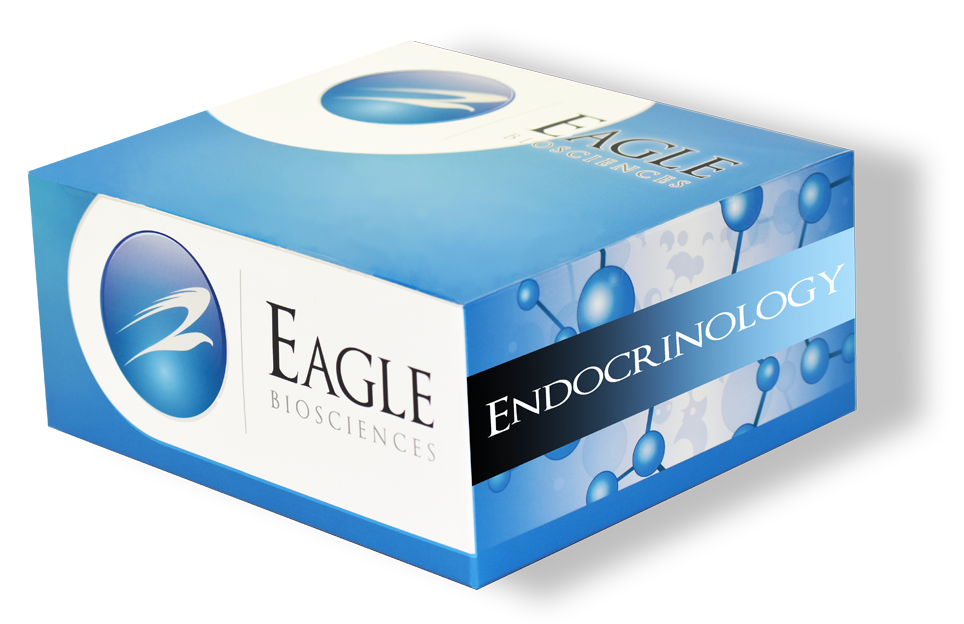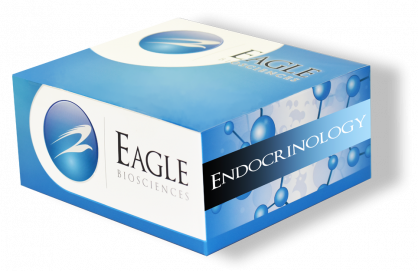Anti-GAD ELISA Assay Kit
Anti-GAD ELISA Assay Kit is for research use only.
Size: 1×96 wells
Sensitivity: 0.24 IU/mL
Standard Range: 5 – 250 IU/mL
Incubation Time: 2 hours 20 minutes
Sample Type: Serum, Plasma (heparin or EDTA)
Sample Size: 25 µL
Alternative Names: Anti Glutamic Acid Decarboxylase ELISA, Human Anti-GAD ELISA
Controls Included
Assay Background
Type 1 diabetes, also known as insulin-dependent diabetes mellitus (IDDM), results from a chronic autoimmune destruction of the insulin-secreting pancreatic beta cells, probably initiated by exposure of genetically susceptible host to environmental agents. Autoimmune destruction of beta cells is thought to be completely asymptomatic until 80-90% of the cells are lost. This process may take years to complete and may occur at any time in all ages. During the preclinical phase, this autoimmune process is marked by circulating autoantibodies to beta cell antigens. These autoantibodies, such as anti-insulin (IAA), anti-glutamic acid decarboxylase (GAD) and anti-tyrosine phosphatase ICA 512 (IA2), are present years before the onset of type 1 diabetes and prior to clinical symptoms.
GAD, the enzyme that catalyzes the conversion of glutamate to GABA, has been identified in two isoforms, with molecular weight of 65.000 (GAD65) and 67.000 (GAD67). Although GAD autoantibodies are found in type 1 diabetes and in the rare neurological disorder Stiff-man syndrome (SMS), the GAD autoantibodies profile in the two diseases differs. Autoantibodies of SMS patients recognize a combination of linear and conformational epitopes of GAD while GAD65 autoantibodies in patients with type 1 diabetes are predominantly directed to the conformational epitopes. GAD65 autoantibodies (GAD65 Abs) are present in 70-80% of newly diagnosed patients with type 1 diabetes.
The combination of the autoantibodies to GAD65 and IA2 is highly relevant for risk assessment of type 1 diabetes in children and adolescence. These tests in combination are more sensitive and predictive than ICA in risk groups, e.g. relatives of patients with type 1 diabetes. GAD65 Abs also occur in a subset of adults with type 2 diabetes. These patients can have pronounced hyperglycemia and after therapy with oral hypoglycemic agents for several months to years they may become insulin dependent. Therefore, these patients are thought to have a slowly progressive form of type 1 diabetes, often called latent diabetes or latent autoimmune diabetes in adults (LADA). The presence of GAD65 Abs in sera of such patients is a sensitive and specific marker for future insulin dependency.
Assay Principle
The assay system uses the ability of GAD65 Abs acting divalently and forming a bridge between
immobilized GAD65 and liquid-phase GAD65-Biotin. In the first step GAD65 Ab from the sample bind to GAD65 coated on the microtiter plate. In a second step GAD65-Biotin binds to this complex. The bound GAD65-Biotin correlates with the amount of GAD65 Abs in patient’s serum. Unbound GAD65-Biotin is removed by washing. The bound GAD65-Biotin could be quantified by addition of Streptavidin-peroxidase and a chromogenic substrate (TMB) and then reading the optical density (OD) at 450 nm. Anti GAD antibodies concentration in the sample is calculated through a calibration curve.


